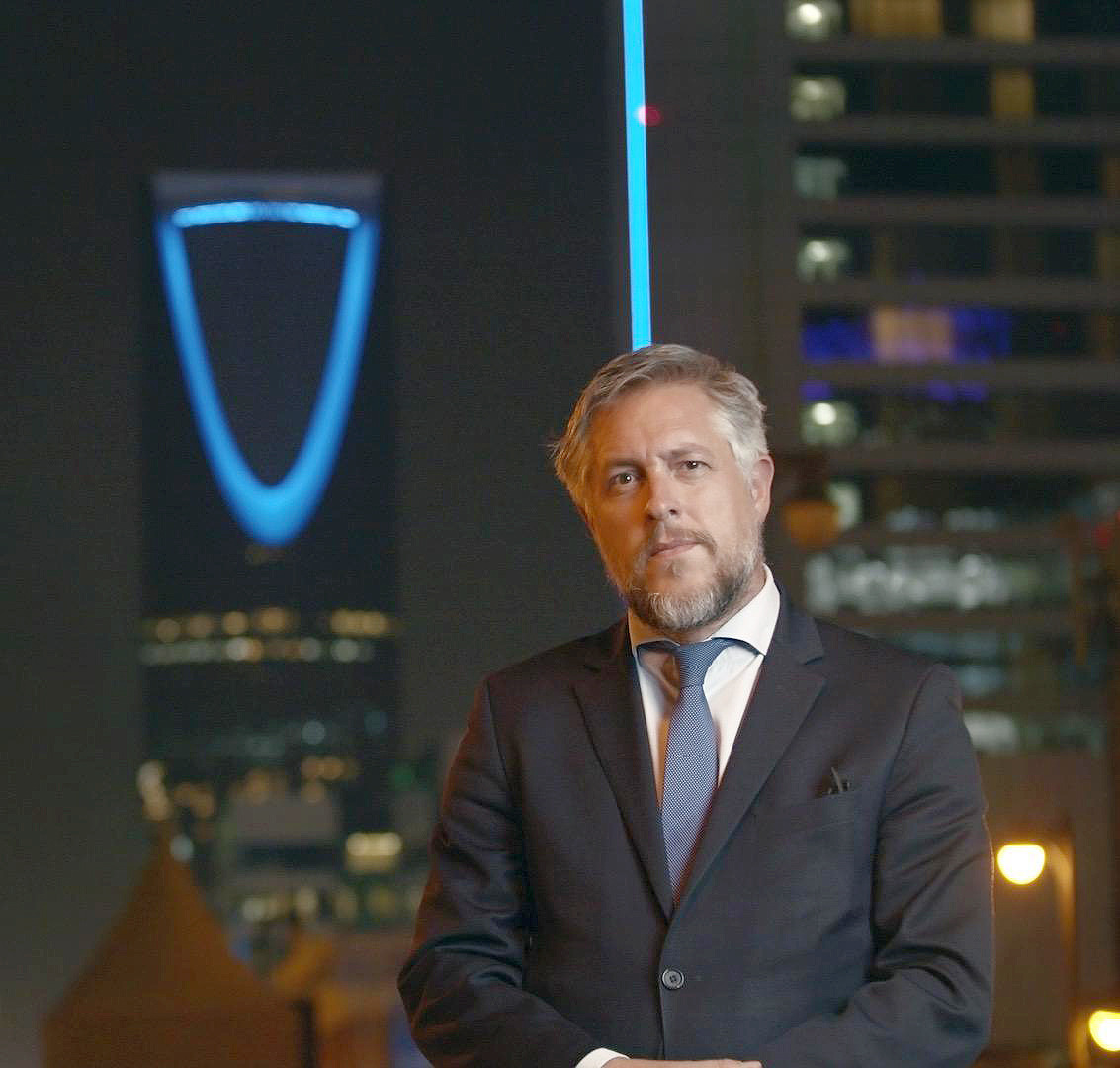International education is the currency of the future
Exploring the wide range of opportunities for Bahraini youth to study and research in the EU. Exclusive Interview with HE European Union Ambassador to Bahrain, Patrick Simonnet
Q1 – The European Union is participating in the upcoming Alpha Conference, an educational symposium that aims to bring educational centers of excellence from around the world to Bahrain. What does the European Union have to offer in the field of education?
A: The EU is a global centre of education excellence, driven by constant innovation, and home to a large number of world-class universities which are helping create the skills for the future and the new generation of creative thinkers, entrepreneurs and global leaders.
The Catholic University of Leuven in Belgium for instance may not be particularly well-known in Bahrain, but it is ranked as one of the most creative universities in the world by Reuters. Not surprisingly given that its scientists and researchers file more international patents than any other university in Europe. Similarly, Germany’s University of Erlangen Nuremberg publishes more academic research, files for more patents and has more academic citations than either Cambridge University or Oxford. Between them, the two universities have seven Nobel Laureates.
And the good news is that with the expansion of our international programmes in the field of education, like Erasmus +, Bahraini students just as those across the Gulf region, can participate, for instance, in short-term exchanges with European universities, to study, but also to take advantage of training and apprenticeship opportunities.
Q2 – Student mobility is expanding rapidly as world class universities continue to fight for global talent. How attractive is the EU as a study and research destination?
A: The European Union is home to more than a million students from the GCC, North America, East Asia and all around the globe, enrolled at our universities with world-renowned reputations with high academic rankings and cutting-edge research facilities. In fact, many of the world’s top 100 universities are in Europe.
Europe’s education system is very inclusive. It has welcomed people like Ozlem Tureci, the daughter of Turkish immigrants who received a doctorate in medicine from the Saarland University in Homburg, Germany, and went on to develop the BioNTech-Pfizer Covid vaccine, just as it trains teachers, doctors and economists. But not everyone is suited to be a scholar. Tertiary education in Europe is geared towards all secondary school graduates, whether they aspire to be a hotel manager or a nuclear physicist. The educational system in Europe is designed to maximize each individual’s potential.
Another attractive factor is the low tuition fees, which are significantly lower than counterparts elsewhere in the world. For example, the Sorbonne University in Paris, one of most prominent universities in Europe, now also with a campus in Abu Dhabi, provides degrees in English in humanities, science, engineering and medicine. Students are only required to pay very modest registration fees, often under EUR 500 a year (213 Bahrain dinar) and no tuition fees, making studying in Europe an accessible dream for many.
Q3 – The EU is renowned for its cultural diversity with 24 official languages. Are there study programmes in English?
A: Absolutely. There are over 4,000 institutions of higher education in the EU, which offer a wide range of courses at undergraduate, graduate and doctoral levels - and a high percentage of these are in English. The number of English-taught Masters in Europe has increased from about 1,000 in 2007 to over 5,000 in 2021. And in a STEM subject, doctoral courses are more often in English than in any other language because it is the unofficial language of science.
Bologna University for instance, one of the oldest universities in the world, founded in 1088, has an increasingly rich programme catalogue in English, ranking first in Italy and within the top five universities in Europe in terms of number of exchange students. It no surprise that it also among the top five Italian Universities in major international rankings.
Q4 – The EU is a large union comprising of 27 countries. How easy is it for students to transfer from one European university to another and indeed to travel across Europe?
A: Mobility within the union is one of Europe’s fundamental strengths. The European Union and a number of other countries codified their tertiary education systems in 1999 under what is called the Bologna Process, which enables students to quickly transfer their credits from one academic institution in one country to another, thanks to the European Credit Transfer System (ECTS).
And once you arrive in Europe, you are in the Schengen area, which gives you vis-free travel across EU borders allowing you to experience Europe’s historic landmarks, centuries old culture, diversity and first-class cuisine, things that are unique only to Europe. Students can visit the well-renowned cities of Paris, Rome, Venice, Amsterdam, Bruges, Barcelona, Prague and Lisbon, but also the up and coming destinations to experience Europe’s unique cultural and natural heritage – from Tallinn to Bucharest and from Dubrovnik to Kraków. There’s a distinct student culture in Europe too.
Q5 – You mentioned Erasmus +. What is it and what opportunities does it offer to Bahraini and GCC students?
Erasmus+ is the EU’s program to support education, training, youth and sports in Europe and beyond and it’s centred around life-long learning, with a budget of €26.2 billion for 2021-2027. It is one of the European Union’s most visible success stories with a track record of more than 30 years in European and international partnerships in the field of education, training, youth and sports. It covers formal, informal and non-formal learning, providing opportunities in higher education, vocational training, early childhood education, adult education and youth. And it is a great instrument to foster closer academic cooperation between Bahrain and the European Union.
The European Union has designated 2022 as the European Year of Youth, an opportunity to significantly contribute to a better future for young people, so there is no better time to encourage closer relations between the European and Bahraini youth. It’s simple to access all the opportunities available under the Erasmus+ programme at https://erasmus-plus.ec.europa.eu/.
Q6 – Does it offer any opportunities for Master Students?
Yes. The Erasmus Mundus Joint Masters (EMJMs) is a prestigious, integrated, international study programme delivered by an international consortium of higher education institutions, is open to all disciplines and GCC students. There are more than 250 EMJM degrees ranging from social sciences and humanities, economic sciences, environmental and geosciences, life sciences, information science and engineering, mathematics and physics.
The programme allows students to study at some of Europe’s most iconic universities including the Sorbonne, the Catholic University of Leuven, the University of Gent, the University of Copenhagen, the Karolinska Institute, and the Erasmus University Rotterdam, among others. Post-graduate courses include engineering of data-intensive intelligent software systems, embedded computing systems, science in marine biological resources, artificial intelligence, innovative medicine, and security, intelligence and strategic studies.
There are more interesting graduate programmes to research in Europe that are not available anywhere else in the world. The University of Skövde in Sweden offers a Master’s degree in computer game design and the Lulea University of Technology offers a post-graduate degree in spacecraft design. There are of course, other more mainstream programmes in English throughout the EU in social sciences, business and economics and anything in between. The choices are endless.
Q 7 – Are there any scholarship opportunities?
Yes. Scholarships are available to the best-ranked applicants worldwide, in annual application rounds. EU scholarships cover the cost of a student’s participation in the programme, travel, and a living allowance. This is a uniquely mobile educational experience requiring two study periods in two countries whilst benefiting from a high degree of cutting-edge expertise.
There are numerous other scholarships available to study in Europe, provided by a number of EU Member States, that can be researched on a country-by-country basis. A useful resource is the Study in Europe website at https://www.studyineurope.eu/
Q8 – What message do you have for prospective students?
Europe is leading the world in tackling climate change, eradicating global poverty, promoting gender equality and universal human rights. We know change is constant and inevitable – whether it is in fashion, business, or technology. If we accept that as a truism and cherish the traditions and environment that have been passed down to us by previous generations, we can strive towards a more perfect world - together.
Studying in Europe will expose you to a unique learning experience that will distinguish you from your peers. Along the way you will have a rich cultural experience and meaningful friendships that will stay with you for a lifetime.
HE European Union Ambassador to Bahrain Patrick Simonnet
Related Posts


